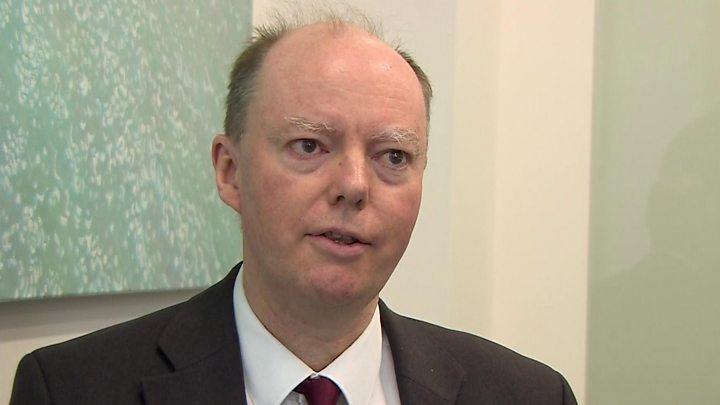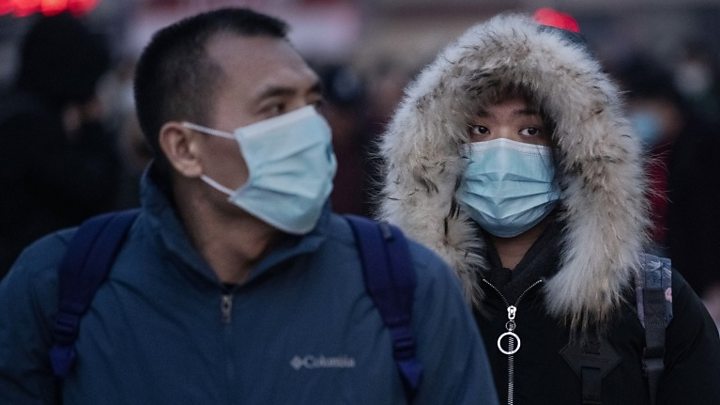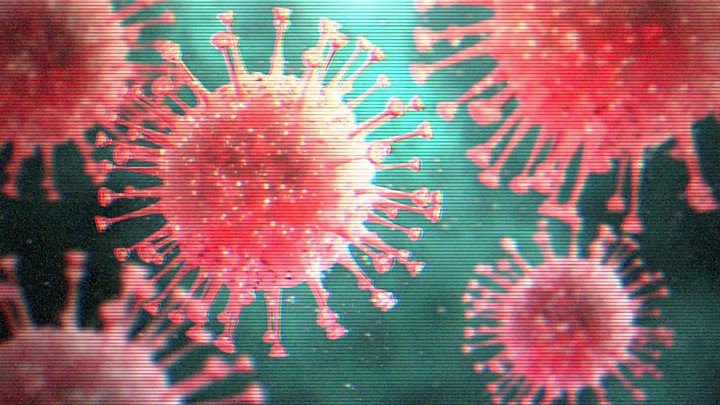Media playback is unsupported on your device
A new public health campaign advises people to use tissues to catch a cough or sneeze and to wash their hands regularly to slow the spread of the new coronavirus.
The NHS-branded adverts will appear on social media, radio and in newspapers.
The health secretary said the ads will “help the public protect themselves”.
Meanwhile officials said they were making “good progress” tracing those who had close contact with two people diagnosed with the virus in the UK.
The two Chinese nationals – who are related – were taken ill at a hotel in York last week and are now being treated at a specialist facility in Newcastle.
One of the pair was a student at the University of York but was not on campus or in student accommodation before or after their exposure to the virus, the university said. It advised concerned students to contact its helpline.
Public Health England (PHE) said it was making “good progress” in tracing people who have come into close contact with the pair.
It comes as more UK nationals are reportedly due to arrive in the UK from the Chinese city of Wuhan – the centre of the outbreak – later on Sunday.
The Liverpool Echo reported an email sent to staff at Arrow Park Hospital on the Wirral confirmed additional evacuees will due join the 83 Britons already in quarantine there.
‘Minimising the spread’
Health Secretary Matt Hancock said while the UK’s “highly trained and experienced clinicians are working round the clock” to prevent the spread of the illness, the general public can play its part.
“Basic hygiene such as washing our hands regularly and using tissues when we cough and sneeze can play an important role in minimising the spread of viruses like this,” he said.
“Today we have launched a UK-wide advertising campaign to help the public protect themselves and each other.”
Image copyright
HM Government
“The government and NHS are well prepared to deal with this virus. You can help too,” one of the adverts says.
The adverts will also appear on outlets and online forums frequented by Chinese nationals in Britain.
“We are doing everything we can to protect the public,” Mr Hancock added.
Last week, the risk level to the UK was raised from low to moderate as the World Health Organisation declared an international public health emergency.
The Department of Health said no further positive cases had been confirmed in the UK by 14:00 GMT on Saturday, with 201 people testing negative from 203 tests.
The death toll from the new virus, which is officially called 2019-nCov, now stands at 304.
All the deaths occurred within China and the majority – 294 – were in Hubei province, where the virus originated. Hubei recorded 45 more deaths on Saturday.
More than 13,000 cases have been confirmed and a small proportion of those – around 100 – have been identified outside China. The UK, US, Russia and Germany have all confirmed cases in recent days.
The 83 Britons at Arrow Park Hospital will spend 14 days in quarantine – but not solitary confinement – in two apartment blocks normally used to house nurses, who have been moved to local hotels.

Media playback is unsupported on your device
The UK evacuees are being put up in fully-furnished rooms, including kitchens, and provided with food and laundry facilities. Families are being kept together, with toys and baby equipment available.
They will have access to a team of medical staff who will closely monitor their condition and any developing symptoms.
Matt Raw, one of those in quarantine, told BBC News that he and his family “were extremely glad to be here”.
Image copyright
EPA
Nurses’ accommodation at Arrow Park Hospital has been re-purposed to house evacuees from Wuhan
He said he, his wife and his mother were staying in a four-bedroom apartment, along with another woman and her daughter. He stressed they were feeling fine and had “an army” of people looking after them.
Mr Raw said there was an area outside where they were able to get some fresh air, adding they were “allowed contact with anybody within the facility, as long as we’re wearing face masks”.
Five coach drivers who drove the evacuees to the Wirral will enter a two-week period of isolation at home as a precaution and the vehicles used will be subject to a “military-grade cleansing process”.
Travel bans
Several countries have introduced temporary travel restrictions in an effort to curb the spread of the virus.
The United States declared a public health emergency on Friday night, with President Donald Trump signing an order which will temporarily bar entry for most foreign nationals who have travelled in China within the last 14 days.
On Saturday, Australia said it too would refuse entry to all non-citizens arriving from China.
While the number of new coronavirus cases worldwide has overtaken those in the 2003 Sars epidemic, the mortality rate is currently low, at 2% – less than Sars, at 10% and Ebola, at 70%, WHO’s chief medical officer said.

Media playback is unsupported on your device
The death rate could yet go up if more of those in hospital die – or down, if it’s discovered there are many other people with mild symptoms.
Learn more about the new virus
Image copyright
Getty

Media playback is unsupported on your device
Do you have information to share? Please get in touch by emailing haveyoursay@bbc.co.uk.
Please include a contact number if you are willing to speak to a BBC journalist. You can also contact us in the following ways:
